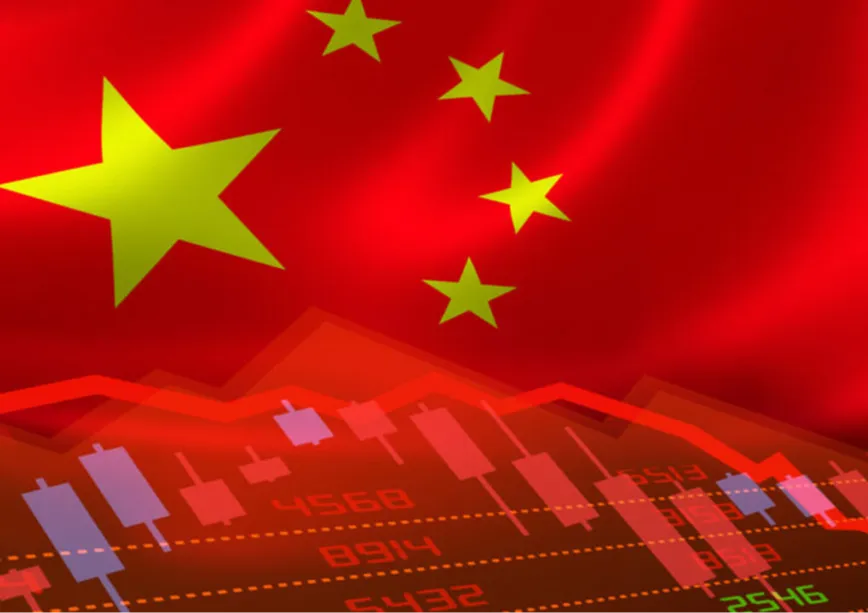
Risks are integral to nations’ pursuits of their national interests. However, today, the risks have magnified and diversified amid rising extraneous challenges and their knock-on effects, ranging from environmental degradation and global warming to humanitarian disasters and wars. Added to the mix is the growing misuse of economic leverage by countries like China as part of their foreign policy to settle diplomatic scores. It is not surprising then that countries worldwide are actively seeking ways to “de-risk” their economic security not only from geopolitical, environmental, and other crises but also from economic practices amounting to diplomatic coercion.
The risks have magnified and diversified amid rising extraneous challenges and their knock-on effects, ranging from environmental degradation and global warming to humanitarian disasters and wars.
In particular, major advanced economies like the United States (US), European Union (EU) countries and other G7 nations are trying to take back control of the global production and supply chains by both looking inwards and outwards outside of China to reduce the risk of exposure to the latter’s increasingly untransparent and unpredictable geopolitical practices which are a result of its state-centric and security-oriented economic policies. These efforts are likely to augur well for emerging economies in the Indo-Pacific like India, Vietnam, and Indonesia, which may not only find economic fillip for their domestic economies in the West’s attempts to de-risk but also a further geopolitical alignment with major powers in a pursuit for a free, fair and multipolar global order. However, it will be crucial for the benefiting nations to be mindful of their own economic entanglements with China, more so because of their geographical proximity to the country, which has long exposed them to more direct and greater geopolitical challenges from the People’s Republic of China (PRC).
Diplomatic de-risking
Within the global economic context, de-risking refers to efforts to reduce risks to economic operations through concerted means, including, most recently, a conscious shift to diversify supply chains and production. However, the current push for de-risking by Western economies as a diplomatic exercise arises not just from a desire for greater economic security, but equally from a geopolitical necessity today to safeguard one’s strategic autonomy vis-á-vis “systemic rivals” like China.
The West’s de-risking of China entails multiple actions, practices, and policies, making diplomatic de-risking an ambiguous exercise. Suffice it to say that the agenda, in the absence of a common toolbox of policies and practices, is to reduce their exposure to China’s escalatory actions and use of trade as a tool for diplomatic coercion in critical areas such as semiconductors and cleantech. Underlying the nebulous, yet unabating, pursuit of de-risking are the acknowledged linkages between a safe economy and national security. Not that economics was never not critical to a country’s security matrix. However, the impact of economic fallouts of global crises, such as the ongoing US-China trade war, or the more recent attacks by Houthis in the Red Sea, or for that matter the deliberate use of economic tools to extract diplomatic concessions, have made explicit the impacts of geopolitical entanglements on global trade and supply chains and, therefore, a country’s political resilience. This precludes the possibility of separating national security from economic pursuits for the foreseeable future, prodding countries to look for ways to not “decouple”, which has proven to be futile anyway, but continue to deal with China albeit from a safe distance.
Within the global economic context, de-risking refers to efforts to reduce risks to economic operations through concerted means, including, most recently, a conscious shift to diversify supply chains and production.
India for the win?
What do these de-risking dynamics bode for emerging economies like India? Prima facie, it may look like a moment of opportunity for the country to bring investments home like it is in pharmaceuticals and global tech sectors. However, the West’s de-risking of China and China’s de-risking of the West should be dealt with caution, especially as perceptions of risks and one’s response to them are liable to vary. As such, even as it may appear that major economic powers commonly acknowledge the economic dangers of a geopolitically assertive China, this is unlikely to produce a cohesive action plan that can become a signpost for what happens next. Far from it, at this stage when the strategy of de-risking still looks nebulous, the very malleability of de-risking risks ambiguity that makes potential investments uncertain and prone to vacillation. Hence, to read the prevailing geopolitical apprehension towards China as a promise for a structural shift in the global supply chains outside of China and into other emerging economies can be concerning, especially as not all trade with China is problematic.
India is aware of this catch. For one, India has its own de-risking priorities, such as those in the defence sector, which make it cognisant of the variability inherent to de-risking as a practice. At the same time, it remains aware of its economic entanglements with China, which despite the recent decline, remain robust and consequential to its own growth, particularly via Global South groupings such as BRICS. PRC remains one of India’s top trading partners, which is likely to have a bearing on India’s response to the global de-risking efforts vis-á-vis its neighbour in the north. Moreover, India’s geographical proximity to China adds another layer of direct and indirect challenges, including the more recent border skirmishes, which could further complicate the implications of an isolated Chinese economy for India’s national security. After all, it is not entirely unimaginable for an aggressive China to leverage its economic position to retaliate against a global shift in the supply chains to its competitors in the Indo-Pacific using various means.
The prevailing geopolitical crises and rivalries are likely to further reduce avenues for global cooperation, motivating states to safeguard their own economic interests and national security.
Notwithstanding the potential geopolitical and economic fallouts, de-risking strategies could nevertheless be leveraged by like-minded countries to strengthen existing and forge newer partnerships. This will be particularly relevant and useful for India, whose robust domestic demand, availability of critical skillsets as well as a shared vision for a liberal and democratic, global order, remain attractive to major economies to diversify their production bases and nodes of supply chains. As such, a growing global interest in a Free and Open Indo-Pacific, such as the Indo-Pacific Economic Framework (IPEF), or the promise of newer economic partnerships, like the India-Middle East-Europe Economic Corridor (IMECC), are likely to find a germane space in the global de-risking efforts. Simultaneously, a common desire to safeguard economic supplies of critical products and raw materials from geopolitically-instigated risks, particularly a potential Chinese onslaught, can also provide a push to countries to iron out differences and disputes at multilateral organizations such as India and the US at the World Trade Organization (WTO). Needless to say, bilateral and multilateral free-trade agreements and strategic partnerships, like between India and Vietnam, could get a further fillip, necessitated by the requirement to protect the conjoined twins - economic and national security.
Going forward, the year ahead is unlikely to be any less competitive and fragmented. The prevailing geopolitical crises and rivalries are likely to further reduce avenues for global cooperation, motivating states to safeguard their own economic interests and national security. Short of a structural shift in China’s posturing, its ongoing weaponisation of its economy will continue to be seen as a risk in need of mitigation. For countries such as India, this may very well turn out to be an opportunity to further attract not just global economic investments, but also ideological alignment around common normative goals. However, de-risking alone will not be enough for the emerging economies to make full use of the prospective shifts in the global value chains. These need to be supplemented with enhanced domestic wherewithals and international alliances, which will not only help them get a better bargain but also cushion them against the potential impacts of a volatile geopolitical world.
Chayanika Saxena has a PhD from the National University of Singapore
The views expressed above belong to the author(s). ORF research and analyses now available on Telegram! Click here to access our curated content — blogs, longforms and interviews.




 PREV
PREV


